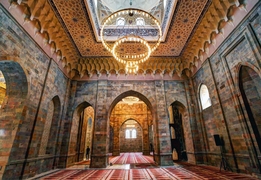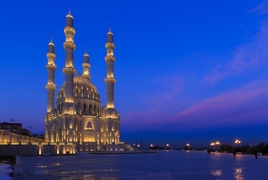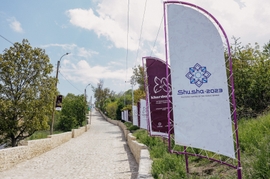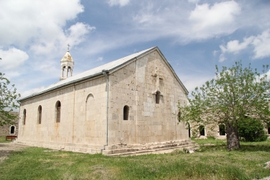Azerbaijan will hold the next edition of the Kharybulbul International Folklore Festival in the city of Shusha in May 2023.
The festival will be organized by Azerbaijan’s Ministry of Culture together with Foreign Ministry, as well as by the special representation of the Azerbaijani President in the Shusha district and the Shusha City State Reserve Department. The upcoming event will take place as part of the action plan approved to celebrate the declaration of Shusha as the 2023 cultural capital of the Turkic World.
The exact date scheduled for the festival will be announced by the culture ministry in near future. The landmark event gets its name from the Kharybulbul flower (Xarıbülbül in Azerbaijani), or Ophrys Caucasica, a flowering plant, which is considered a symbol of Shusha city. It has a unique appearance which makes it look like a nightingale — “bulbul” in Azerbaijani. Two petals of the flower resemble wings, while another one looks like a bird’s head.
The first edition of the Kharybulbul Music Festival took place in Shusha in May 1989 to honor famous Shusha-born Azerbaijani singer Seyid Shushinski. The festival was held traditionally in May bringing together musicians from Japan, the United States, Türkiye, Germany, Israel, Italy, Spain, Austria, Afghanistan, and the USSR among participants. The fact that Shusha was chosen as the venue for the Kharybulbul Music Festival was no coincidence as the city is well known as “the temple of Azerbaijani music” and the conservatory of the South Caucasus. The city is home to one of the leading schools of mugham, the traditional Azerbaijani vocal, and instrumental arts genre that has influenced music throughout the Caspian and Middle East regions.
The third edition of the festival was held in 1991, while its fourth edition was supposed to start on May 15, 1992, with about 500 people from more than 30 countries among participants.
However, on May 8, 1992, Armenian armed forces captured Shusha as part of the bloody war initiated by Armenia following Soviet Union’s dissolution. Occupation of the city and mass ethnic cleansing policy conducted by Armenia against around 25,000 ethnic Azerbaijanis living in Shusha and 31 surrounding villages left no chance for the festival’s celebration. Armenia’s military campaign against Azerbaijan lasted until a ceasefire deal reached in 1994. As a result, Armenia occupied 20 percent of Azerbaijan’s internationally recognized territories. Over 30,000 ethnic Azerbaijanis were killed, and one million were expelled from those lands in a brutal ethnic cleansing policy conducted by Armenia.
The Azerbaijani army restored Azerbaijan’s sovereignty over Shusha on November 8 during the 44-day-long counter-offensive operations lasting from September 27 through November 9, 2020. Azerbaijani forces liberated more than 300 settlements, including the cities of Jabrayil, Fuzuli, Zangilan, Gubadli, and Shusha, from nearly 30-year-long illegal Armenian occupation. The liberation of Shusha played a crucial role in the retreat of Armenia’s forces and the cessation of hostilities. The war ended with the signing of a tripartite statement by Armenia, Azerbaijan, and Russia on November 10, 2020. Under the agreement, Armenia also returned the occupied Aghdam, Kalbajar, and Lachin districts to Azerbaijan.
After the war, President Ilham Aliyev declared 2022 the “Year of Shusha” in Azerbaijan to mark the 270th anniversary of the founding of Shusha by Panahali Khan in 1752 and to speed up the restoration of the city.
In 2021, after almost 30-year break Kharybulbul International Folklore Festival was again held in Shusha. The event was organized under the motto “Multiculturalism in the Azerbaijani Music” and featured performances by representatives of dozens of nations living in Azerbaijan. In 2022, the festival featured performances by prominent musicians invited from Azerbaijan, Türkiye, Georgia, Uzbekistan, Pakistan, Mali, and other countries.


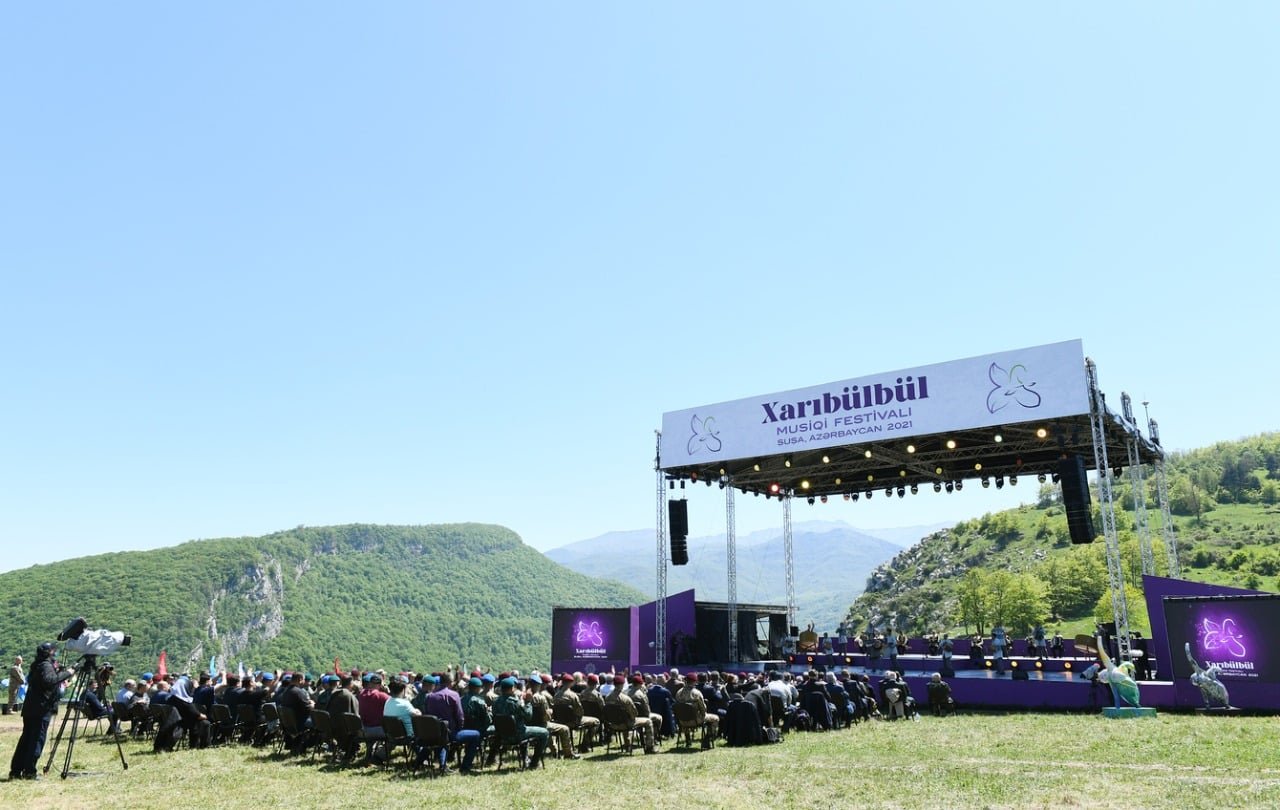




 Iran's senior military leaders described the drone and missile attack on Israel on April 14 night as “successful".
Iran's senior military leaders described the drone and missile attack on Israel on April 14 night as “successful".
 The number of evacuees from flooded areas in Kazakhstan has reached 97,852 people, including about 32,856 children since March 27.
The number of evacuees from flooded areas in Kazakhstan has reached 97,852 people, including about 32,856 children since March 27.
 Iranian President Ebrahim Raisi warned Israel that it would face a "real and extensive" response if it makes any "mistake" following Tehran’s missi...
Iranian President Ebrahim Raisi warned Israel that it would face a "real and extensive" response if it makes any "mistake" following Tehran’s missi...
